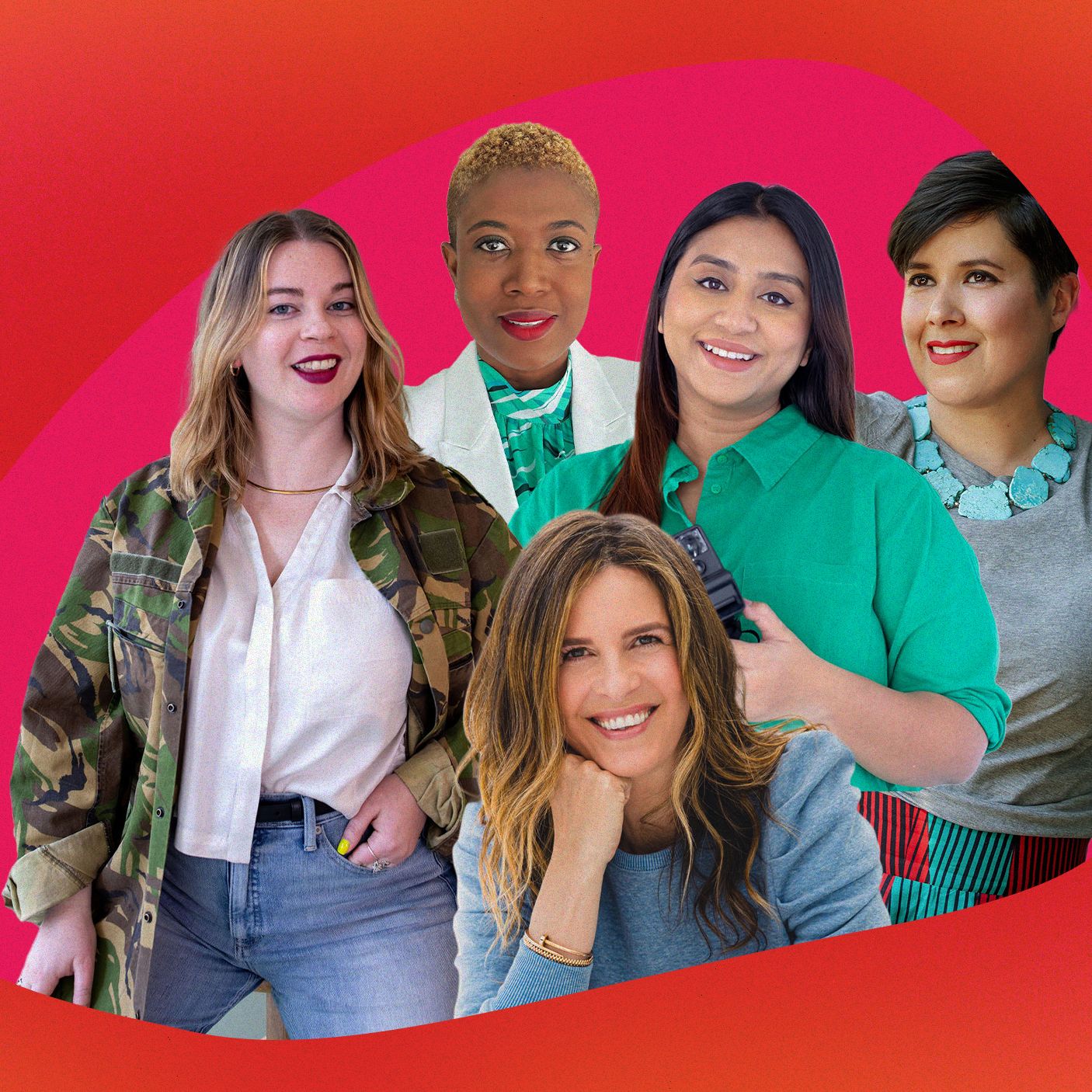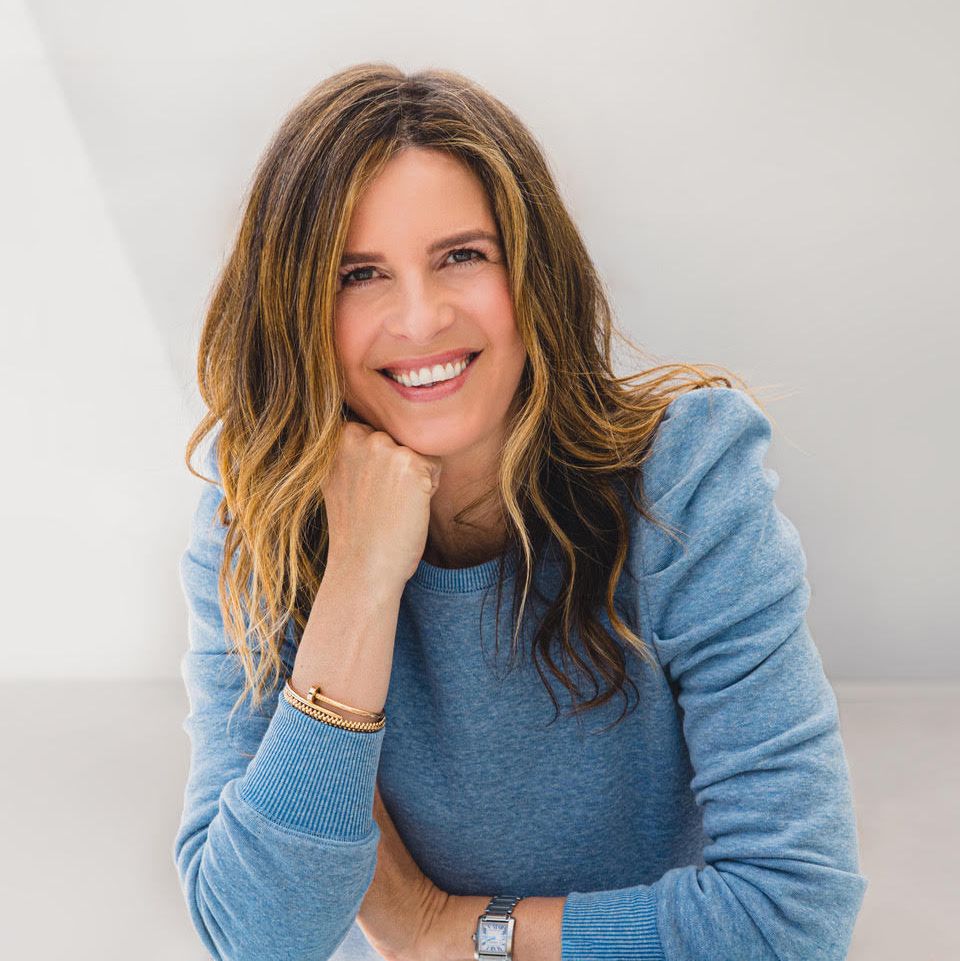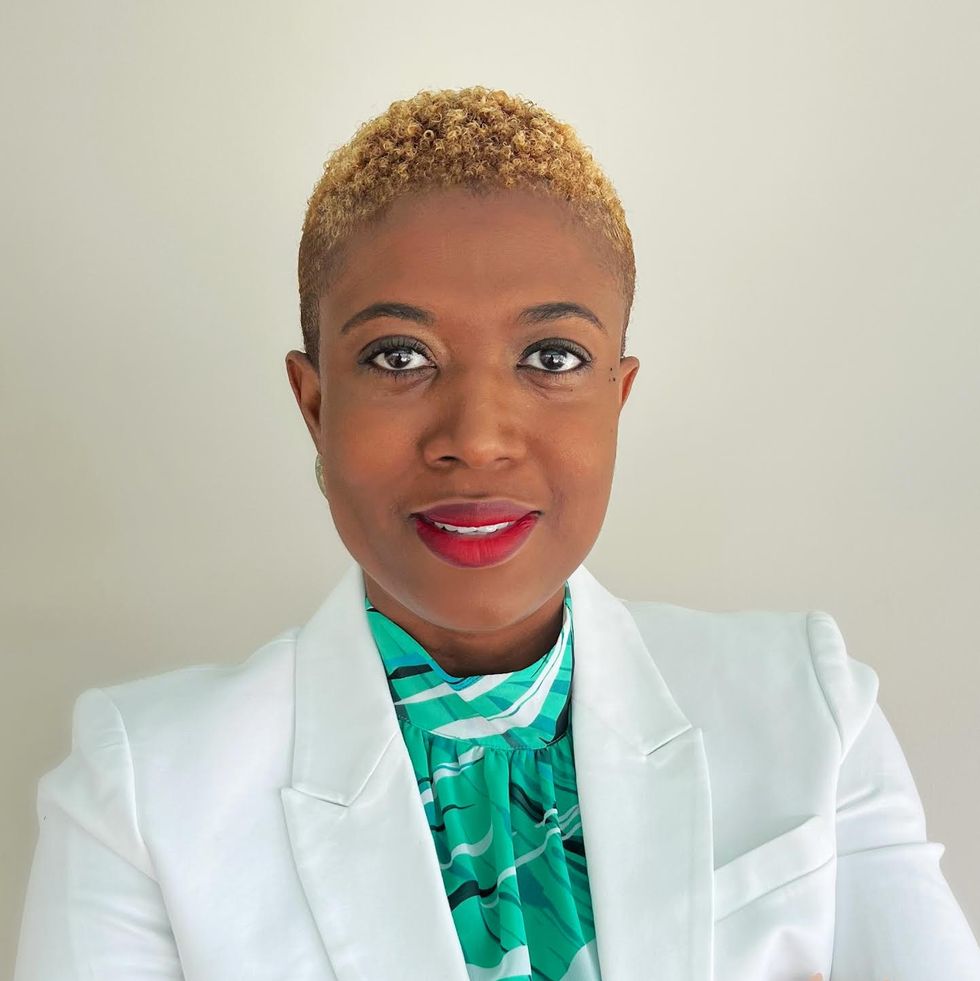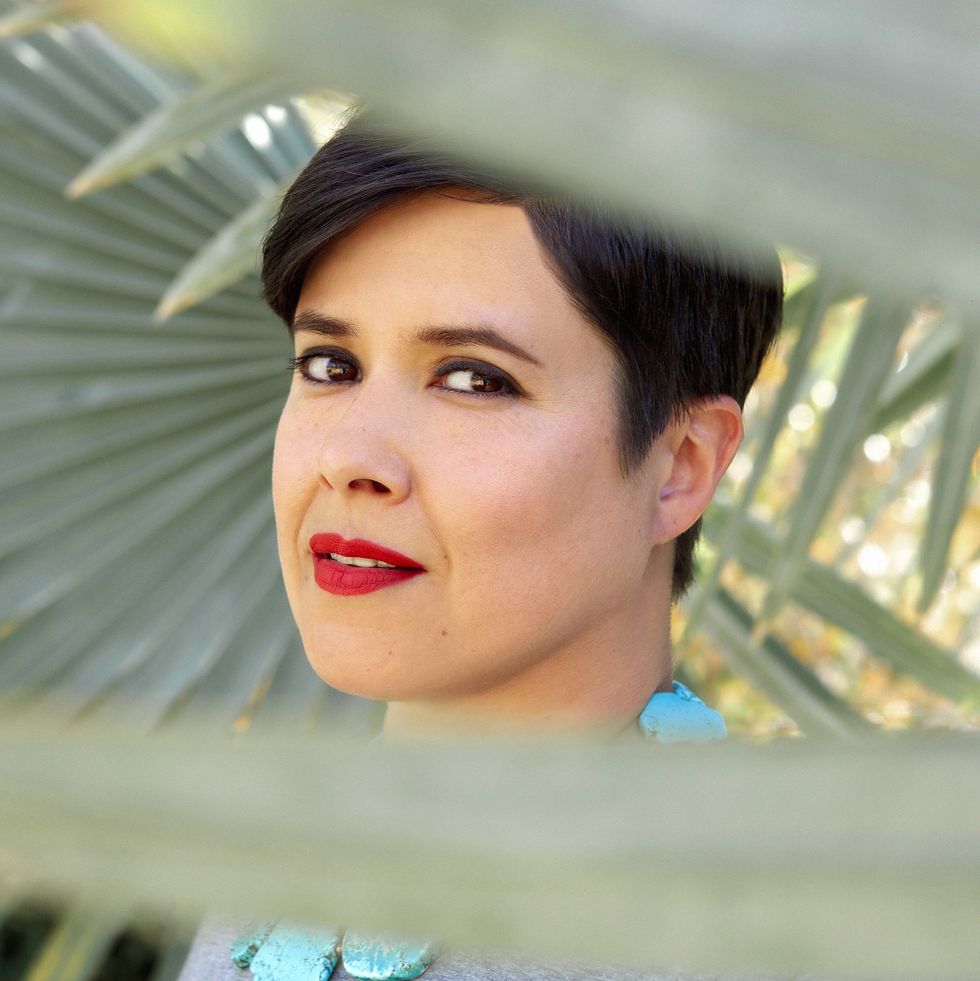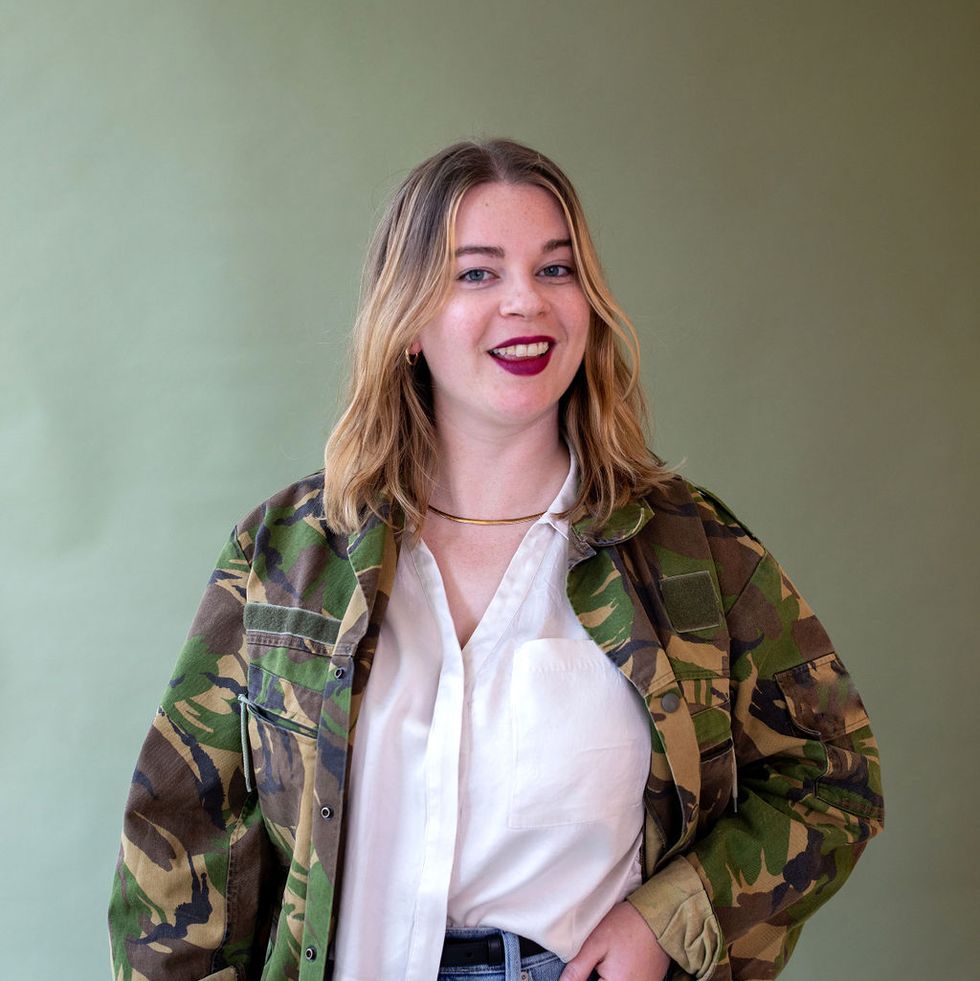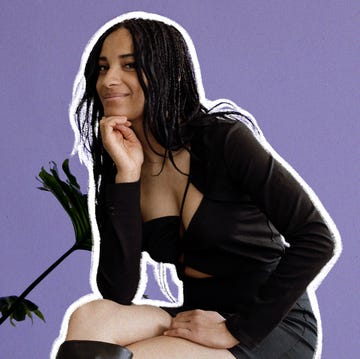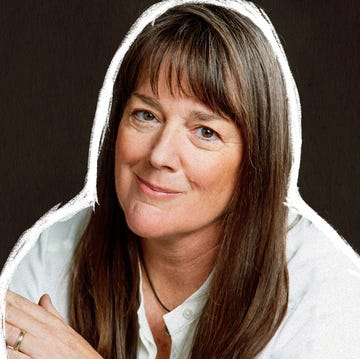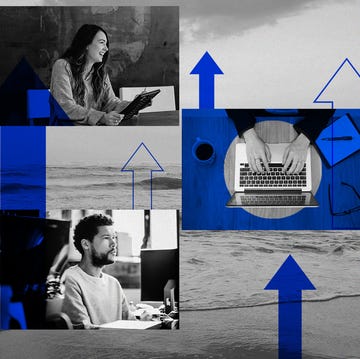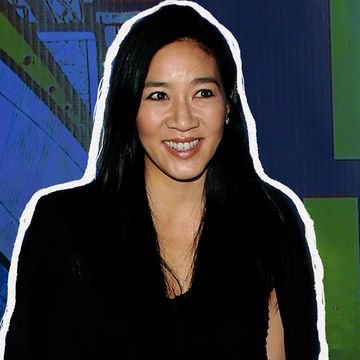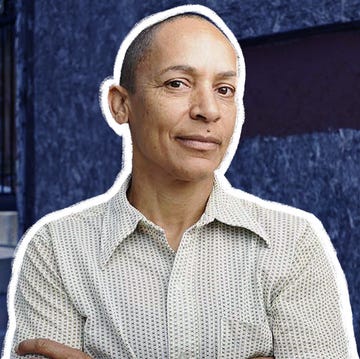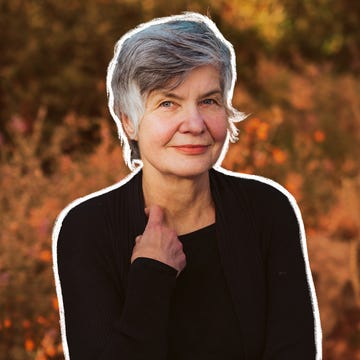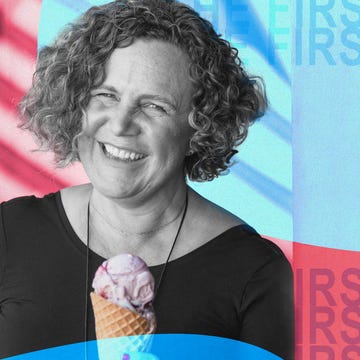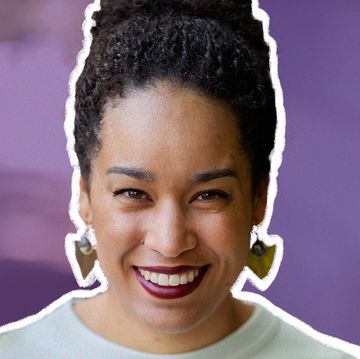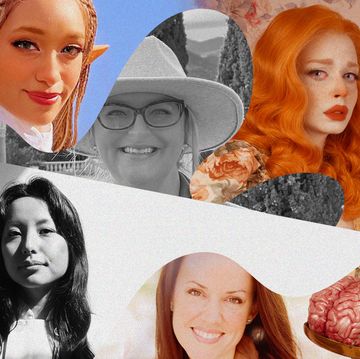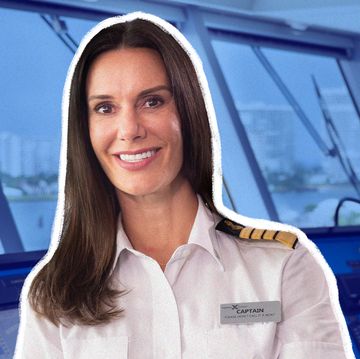When it comes to the working world, sometimes it pays to do your own thing. Starting your own business gives you the opportunity to use skills you’re passionate about, create boundaries between your life and job, and provide a means to give back to the community, whether it means donating time and money to your favorite causes or employing like-minded people.
But too often, women are left out of conversations about entrepreneurship. Which is, to put it frankly, absurd. According to a study by American Express, nearly 13 million businesses in the United States are owned by women — generating upward of $1.8 trillion dollars annually. And those numbers are only set to shift upward, as more women than men continue to apply for business licenses.
Taking your idea from dream to reality can be intimidating — but it doesn’t have to feel impossible. Which is why this month we’re celebrating five women who not only have made their own business dreams come true but are now also helping others dream big.
Candace Nelson, New York Times best-selling author, angel investor, and co-founder of Sprinkles Cupcakes
You might know Candace Nelson best as a pastry chef. As the original co-founder of Sprinkles, along with her judging stints on popular food competition series like Cupcake Wars and Sugar Rush, she’s certainly made a reputation on the sweeter side of life. But as the entrepreneur — and recent co-founder of L.A. pizza hotspot Pizzana — explains, she didn’t initially see the business world through a creative lens.
“I started in investment banking and corporate finance, working with tech companies as a financial analyst, where I was essentially tasked with crunching a bunch of numbers and putting together pitch books,” says Nelson. “I decided after the dot-com bust and 9/11 that I wanted to do something much more creative.”
It didn’t happen overnight. As Nelson recalls, she had to do plenty of selling to help others see the vision that came so intrinsically to her — a lesson that she details in her newly published book, Sweet Success: A Simple Recipe to Turn Your Passion Into Profit. Ultimately, her ability to trust her market research and instincts paid off.
“In the beginning, nobody understood my idea,” she says. “They thought it was maybe just a fun idea that I would see out for a little bit and then get back to a serious career. But the experiences and interests led me to a vision, to see an opportunity that I think the rest of the world didn’t. I was enmeshed in this pastry world, and I love to bake, and I saw the white space and that opportunity. I felt like if it was something that I really wanted in the world, there must be others who felt the same way.”
On deciding to sell Sprinkles
“I was completely unprepared for how emotionally tied I would be to my business. And it did take a lot of unwinding after I stepped away. More than I even ever anticipated! I knew it would be hard because this was truly my first baby. I started Sprinkles before I had kids. I gave it everything. My husband was my co-founder. I was so wrapped up in it, and to a certain extent, there was no separation of identity from my business. And although stepping away from Sprinkles and selling my majority stake was the ‘right’ thing to do at the right time, it was incredibly hard, and it led to a period of really searching for self again, and trying to find that self that was distinct and separate from the business. I got some early advice from friends of mine who are in the entertainment industry. They would say, ‘Well, you can’t read your reviews. You can’t because you’ll assign your value to the good reviews. And then that means you have to assign your value to bad reviews.’ It’s great advice, but you can’t really learn it until you go through it yourself.”
On becoming an angel investor for other businesses
“I never wanted to step into those shoes because that almost takes me outside of the game. I like being operational, and I like starting things. And what I realized was the importance of focus. I like starting things so much that there was a point in time where I was getting involved in too many things. And what I realized was angel investing is an incredible way for me to feel part of building something and to continue to learn new industries, new businesses, and new technologies but not ultimately be responsible for it at the end of the day. It’s almost like paying for continuing education. I can continue to build my own business, which right now is 100 percent Pizzana, but then still get investor reports from these companies that I’ve invested in without taking my eye off the ball. Early-stage investing is definitely not financially rewarding right away. It’s definitely a longer game. But it still allows me to have that excitement of being part of something new and building but without the many, many hours that it typically requires.”
On deciding to write her book
“I wouldn’t have even written this book if it hadn’t been for the pandemic. All of a sudden, the calendar just kind of wound down and just ground to a halt. And it was really the first time that I had had any extra time to sit down and reflect on the journey and the wild ride that I’ve been on, and then give myself a little credit where credit is due. And also, I wanted to mine all of the lessons from the things I did wrong. The hardest part was learning to be really vulnerable and not write a story from the perspective of marketing my business. From the most basic standpoint, I didn’t need to market my business [Sprinkles] anymore because it’s not my business anymore. But also, my book wasn’t really helping anyone if I couldn’t connect with them on a deeper level. I think my initial drafts, they were fine, but they weren’t very good because I hadn’t dug deep enough. It was self-therapy in a way. But by the same token, I was always very clear: I didn’t want to write a memoir. I really wanted to write something where I illustrated with my stories that offered really valuable and actionable tools.”
Samantha Abrams, CEO and managing director of Walker’s Legacy
According to a recent study by LendingTree, only 2.4 percent of small businesses in the United States are Black-owned and operated. This is a statistic that Walker’s Legacy is actively looking to change. The nonprofit foundation is a hub for Black and minority business owners who are looking to grow and expand their ideas into sustaining enterprises. It’s a holistic endeavor, one that meets women where they are with education, resources, and networking opportunities, whether they’ve just dreamed up a project, already have a proposal, or are actively looking for investors. As CEO and Managing Director Samantha Abrams explains, entrepreneurship has been a major part of her upbringing. She’s excited to share that with other women.
“Coming from the Caribbean, my mother and father landed and decided to bet on themselves and their own operations as entrepreneurs,” she recalls. “It is literally in my DNA. My mom started our garment factory while she was expecting me, and I grew up hearing her sell and pitch her product.”
On Black women’s legacy of entrepreneurship
“Women are at the center of the economic mobility movement. We’re the center of our homes; we pay her bills, even though our partners might be contributing financially, or even just holding it down completely financially when women are caregivers, their mothers, their sisters, their nieces. Black and brown women in particular, that relationship is accelerated because of the systems and the structures in which society forces us to operate in. So inherently, when you look at who we come from, we have to be resilient. We have to be innovative. So, how do we talk about innovation and understand that it’s something that’s just literally in your DNA? I think of the Southern community and great-grandmothers making peach cobbler cakes and selling it in front of their homes. That’s marketing, that is selling, that’s knowing how to price your product, that’s market research to see which pie sells.”
On serving Black and brown women at any point in their entrepreneurial journey
“At Walker’s Legacy, we have a tiered system, like a ladder. And this ladder allows women who are just at the ideation stage. They believe that they have the solution, or they have an idea for a brilliant venture — how do you design a business plan? How do you think about your business model? How do you do customer service? You created a minimum viable product. But then we have folks who are further along. They’re very comfortable, and so it’s easy for them. Nothing is easy, but they’ve managed to take this business and run with it and have capital and revenue coming in. They’ve done their friends’ and family fundraising; they’ve invested their 401Ks like I did. So, how do we best equip them with the tools and resources? How do you consider your business? Is it ready for venture capital? Is it ready for angel investors? You compound everything else within the structures we have to operate in. Black and brown women have another hurdle yet continue to build successful businesses while not having the same kind of access to procurement opportunities. We don’t speak the same language. We don’t have the tactical and technical know-how to navigate. So, that’s where you have the next level of procurement verticals, where we’re going to train our entrepreneurs on all the things and kind of fill in those gaps so that they are readied.”
On the power of sharing collective knowledge
“I believe our networks are our net worth. I believe in just picking up the phone and calling for help. I’ve been doing that and really relying on people who are smart and dedicated and committed to this kind of work. [Meeting in person] is one of those places that we really need to show up this year. And we’re starting small. We’re starting with monthly meetings as a safe space for these women to come in and share and learn from each other. I always tell them that the cohort is their first advisory board if they don’t have one. Because there’s so much knowledge and lived experiences in that room. They should be relying on one another to solve some of those challenges, because you might have experienced something that I’m not experiencing, but I can glean from your experience. We’ve got big ideas, and we need people to come and support us in developing the big ideas. One of the ideas is to have an on-demand channel where you’re accessing content and resources. You’re accessing prerecorded videos, like how to build and design your business model. Hopefully, that is something that will come online pretty soon.”
Chitra Das, social media digital creator
When social media is used right, it can be a billboard for your business. However, many would-be entrepreneurs are overwhelmed by the idea of creating their own content. That’s where Chitra Das comes in. As Curious Chitra on Instagram, she reaches an audience of more than 400,000 people, many of whom call for help to demystify the process of creating Instagram Reels. She’s a creator with a buoyant attitude about the process (“I love creating content!” she says. “I love being creative!”) who has actually turned teaching other people to market themselves and potentially go viral into a business.
And as she reveals, helping would-be clients find your business on social media might be easier than you might think.
On her offerings
“I have basically one signature course, which is my Instagram Reels course, where I teach you how to get started choosing, defining, and perfecting your niche. Figure out whatever your content categories are, what are you going to post, how to plan out your content, and then I take you through how to shoot everything, how to edit everything, create your audio, and then how to grow your page to take it to a point where you could be a part-time or full-time creator. Or if you have a side business, how to grow it, get sales, and have that part of your life. And then I have all this free content that sits on my Instagram and my YouTube. So, if you’re not ready to take the plunge and invest in a course, that’s also there.”
Why she loves social media coaching
“Every day, we do it like a student check-in. I am not a huge people person, but I just love talking to my students. It’s so funny. I really, really enjoy it. I really enjoy giving them feedback and finding things out for them. If they have a question, I’m like, ‘Okay, like, let me just figure out how I can do this, and I’ll teach you how to do it.’ I just think back to after university, not knowing what to do, and now just being so sure of it. That’s a really nice place to be in life.”
The fringe benefit of going viral and creating passive income
“My life has completely changed since I grew on social media. Right now, I am 35 weeks pregnant, and I can take half the day off, or half the week off, and I still have a backlog of content that I’ve created for my small business that I’m able to post on the go. I can check in with the students on the go. Just having a lifestyle where it’s like, ‘Okay, I have this course, and I have my business that I can just create a batch of content in January, and I have three months’ worth of content, and I can just travel and be posting that and know that the sales are coming in.’ I would not have been able to do any of this if I had a traditional nine-to-five, or even if I just didn’t discover a way to create and batch content, and then be able to take this massive amount of time off.”
Sandra Velasquez, founder of Nopalera
When Sandra Velasquez appeared on the reality show Shark Tank, she was looking for an investor for her burgeoning body care company, Nopalera. However, when the show’s investors (or sharks) asked for too much equity in her company, she walked away without a deal — confident her company was worth more than their evaluation. While it might have played like a shocking piece of television, Velasquez looks back at her appearance on the show with nothing but gratitude. She had the opportunity to showcase her products, created from the nopal cactus, and honor the Hispanic community with her decision to value what she’s created.
“It’s actually not about you,” Velasquez says of her business strategy. “It’s about your customer; it’s about the community. And if you build around that, it just has a higher likelihood of being successful. The importance of just having actual core values that you truly live by, I think that’s really demonstrated by my appearance on Shark Tank. These are our core values. And they exist everywhere I show up myself. Just because I’m on Shark Tank doesn’t mean that we throw our core values out the window. ‘Stand in your worth’ is one of our core values. And so, I had to honor that.”
While it’s easy to see her path now, Velasquez says the road wasn’t always so clear. She recalls being in her 40s as a single mom with no savings account, student loan debt, credit card debt, and a goal to do more. She didn’t magically become rich overnight — but she found the resources through sheer creativity, something she says is open to anyone who is willing to make the leap.
“If anything’s going to change in my life, I’m really going to really change my life,” she recalls. “I’m gonna have to be bolder. I’m gonna have to be more courageous and actually go and build something. And so, that was when I decided I was gonna start this high-end-looking brand. It was gonna be like, ‘Go big, or go home.’ And I really built the brand that I envisioned, not just the brand that I could afford at the time. So, it was a lot of payment plans, a lot of using my American Express card because there was no family and friends. There were no investors. There was nothing — it was just sheer will and vision.”
Why she feels good about walking away from an offer on Shark Tank
“Once I got the first offer at 30 percent, I was like, ‘Okay, wow, we’re not seeing eye to eye.’ Every entrepreneur goes in there with a ceiling in mind — there’s the limit where you’re like, ‘We cannot go above this.’ That is a moment for a lot of people. The thing that I wanted to hopefully demonstrate to our community is that a lot of times we make decisions out of fear, with the belief that if we don’t take what’s in front of us, there’s not going to be another opportunity ever again. After Shark Tank, I went on to raise $2.7 million. There is more, and when you really know what your value is and what you’re worth, you have to be willing to walk away from the things that are not aligned. That’s scary, right? But knowing that there’s just more out there.”
Why she chooses to live with an abundance mindset
“There’s so many of us who live in scarcity and survival. We think, ‘This is the only chance that we’re gonna get in our life. This is the only money we’re ever gonna make in our lives.’ And a lot of that has to be unlearned, because we inherit those beliefs from, first and foremost, our family. The recognition that you even have this belief is step one. And then, wanting to let go of them and change your beliefs. But the idea and mindset of actually wanting to make more money and have an abundance, I only came to that recently, in my 40s. Now, I look at money as a tool to go make an impact. I certainly want money for myself so that I can cover my bases, take care of my family, and [get] all of those things that I need — we all deserve that — but also, I want to be able to write large checks to the Hispanic Scholarship Fund or to help other people start businesses. That kind of impact, you can’t have that if you are just surviving.”
On believing that you can creatively problem-solve on a budget
“The first thing that you have to conquer is your mind. Because a lot of people think that they can’t start businesses because they don’t have money. And I’m living proof that you can start a business without money. Because I literally had no money. I was in the negative; I was unemployed. There was no money, and I just got creative with it. Because that’s what happens when you have nothing to lose and your back is up against the wall. You get really creative, like how can I make this work? Is there a payment plan option? Can I borrow this money? Can I sell something to make money — anything to make it happen. And honestly, you need that kind of drive to really run and scale a business. Because it does not get easier. You just get better at solving problems.”
Tori Dunlap, founder and CEO of Her First $100K
When Tori Dunlap was 9, she started her own business, care of a vintage quarter-taking vending machine gifted by her dad. From there, she eventually scaled up to 15 machines by the time she graduated from high school. Not only did that experience help fund her college education, but the process of learning the ins and outs of cold pitching, customer service, and value in what she was selling also helped set her up for a life in business, and inspired Her First $100K.
“My parents were financially responsible, and I’m grateful that they taught me about money as a kid,” Dunlap explains. “I went to college with tons of financial knowledge given to me by my parents and immediately realized not everyone grew up with this kind of education available to them. I became the de facto friend when someone needed financial help, and that’s how Her First $100K began.”
What started out as a blog documenting Dunlap’s goal to save $100,000 by the age of 25 quickly grew, inspiring her New York Times best-selling book, Financial Feminist, and a Her First $100K app, which she co-funded with Treasury. And in a full-circle moment, she was even able to become an angel investor for a woman-funded snack food company.
“I wish I knew how amazing and gratifying this journey would be,” says Dunlap. “I wish I could tell younger Tori that it all worked out — she’d be really proud to see what Her First $100K has become.”
What fearful messages have women internalized about building their own businesses?
“Women are not taught about money in the same way men are. Society tells men to take risks and make big swings with their careers and finances, but women are not praised for making those same decisions. Instead, we’re judged. I think when women want to start businesses, we have these internalized fears that they will fail or that we’re throwing away the stability of a corporate career. We don’t always feel like we’re prepared to be entrepreneurs or deserve success. When in reality, we are absolutely capable of being business owners.”
What steps should a would-be business owner take before opening?
“My mantra for business is ‘Serve before you sell.’ Instead of launching a product or service and hoping to build a community around it, build a community, and then launch a product or sell a service. You need to build a rapport with your audience. Social media is a great way to do this. Provide some free resources, even if that just means sharing infographics on Instagram or videos on TikTok. Foster a community, and then market your products, and grow a business. You also need to be scrappy. Don’t start by making a huge ad buy on Facebook. Try to begin your business by using free resources in the beginning. It will increase your profits. I also recommend creating a product that is incredibly valuable and the crux of your business. Look at what your community is asking for, and center your business around that.”
How to spend money on your business while staying shame-free
“There is an urge to begin spending money when you begin making money. Don’t get me wrong — investing money in your business can be good, but sometimes it is unnecessary if not done strategically. Don’t feel rushed to meet certain benchmarks. There is no ‘right’ timeline for growing a business. If you feel you’re becoming impatient with the process, take a step back and reevaluate your goals. Slow growth is still growth. I’ve created a shame-free community. We reject the narratives that women can’t afford to purchase property because we’re spending money on lattes and avocado toast. That’s inaccurate and, frankly, sexist. Instead, Her First $100K encourages curbing emotional spending by focusing on ‘value categories.’ What is important to you? Whether that’s travel, food, or plants, focus on spending in those categories so you can avoid spending regret.”
Laura Studarus is a Los Angeles-based travel writer who has contributed to Fast Company, BBC Travel, and Thrillist.
Get Shondaland directly in your inbox: SUBSCRIBE TODAY
